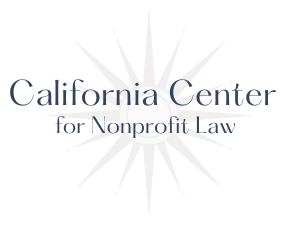
New Accounting Standards for Crypto: What Charitable Organizations Need to Know
Crypto donations are an increasingly popular way for individuals to donate to charitable organizations. In fact, between 2018 and 2024, charitable organizations received an estimated $2 billion in cryptocurrency donations. Leaders of these organizations may welcome and tap into this relatively new revenue stream. Still, they must be aware of their recordkeeping responsibilities to avoid the risks of inaccurate financial reporting.
The California Center for Nonprofit Law is here to advise you about the various legal requirements that impact your public charity, including those related to accepting donations in the form of cryptocurrency. Contact our office to learn more about these and other important issues necessary to keep your charitable organization operating smoothly and complying with all federal, state, and local laws.
Accounting Standards Update 2023-08
The Financial Accounting Standards Board (FASB) issued the Accounting Standards Update (ASU) 2023-08 to guide organizations in documenting cryptocurrency assets. This guidance goes into effect for fiscal years beginning after December 15, 2024.
Defining Cryptocurrency Assets
ASU 2023-08 provides six criteria that must be present for an asset to qualify as crypto, as follows:
- The asset is intangible in that it lacks physical substance. This definition excludes financial assets and goodwill.
- The asset holder is entitled to the rights and value of the crypto asset only, not any underlying goods, services, or other assets.
- The asset exists on a distributed ledger based on blockchain or similar technology.
- Cryptography or coded algorithms that obscure communications secure the asset from access by unauthorized parties.
- The asset is fungible because it is interchangeable with another good or asset of the same type.
- The asset is not created or issued by the reporting entity or its related parts.
The leaders of charitable organizations must be familiar with these criteria to identify crypto donations and properly document them in their records.
Measuring the Value of Crypto Assets
ASU 2023-08 states that entities holding crypto assets must value them at fair value. The Accounting Standards Codification (ASC) Master Glossary defines a fair market as “the price that would be received to sell an asset or paid to transfer a liability in an orderly transaction between market participants at the measurement date.” Charitable organizations will need to reevaluate the fair value of crypto assets at each reporting period, which is often quarterly rather than annually.
This valuation method departs from the previously used Generally Accepted Accounting Principles (GAAP), which treated crypto as indefinite-lived intangible assets. While the GAAP methodology is still used in some circumstances, ASU 2023-08 no longer permits organizations to record crypto as indefinite-lived intangible assets.
Disclosing Crypto Assets
Once charitable organizations have acquired and valued crypto assets, they must disclose them separately from other intangible assets on three major financial statements:
- Statement of Financial Position – Crypto assets should be listed separately from other assets, including other intangible assets.
- Statement of Activities – Gains and losses from crypto assets should be recorded as changes in net assets.
- Statement of Cash Flows – If an organization converts the crypto into cash, the cash is classified as operating activities. If the crypto is earmarked for a long-term need, it is classified as financing activities.
Weighing the Risks of Crypto Donations
Although crypto donations may pose new income streams for charitable organizations, they also have some potential risks. For example, tracing crypto to their original owners can be challenging. This lack of transparency can be problematic for some donors. Crypto assets also can be very volatile, leading to concerns about financial instability and an inability to project finances for organizations that accept those donations. As a result, organizations that accept crypto donations must regularly value them, disclose them pursuant to the ASU 2023-08 standards, and produce accurate financial statements.
Contact Us Today for Legal Advice and Assistance
The California Center for Nonprofit Law concentrates its practice on legal matters that affect charities and other nonprofit organizations in California. Our unique focus allows us to keep ahead of constant local, state, and federal laws and policies as they develop over time. We are here to represent the interests of your charitable organization throughout every stage of your legal matter. Call us at (949) 892-1221, email us at info@NPOlawyers.com, or fill out our contact form online and schedule a consultation about your charitable organization today.
